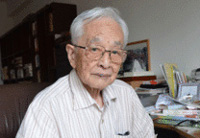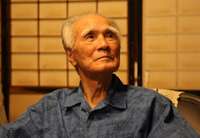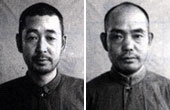Aged Japan veterans voice concerns about military policy shift
(Agencies) Updated: 2014-08-14 11:30"LET'S MEET AT YASUKUNI"
Abe last December visited the shrine, where Japanese leaders convicted by an Allied tribunal are honoured along with war dead. The prime minister said he had done so to pay respect to those who died for their country, not to glorify the war.
|
 |
| Nothing noble about kamikaze, says former Japanese pilot |
|
 |
| Ex-Japanese PM: Abe should not visit Yasukuni Shrine |
"I believe he does not need to pay a visit to Yasukuni at the price of ties with China and South Korea, if he hopes for safety and peace of mind of the Japanese people," Hisato said.
Ichimatsu Shimura, 93, who fought the Allies and suffered from malnutrition and bloodsucking leeches on a long retreat through Myanmar's jungles, agrees Abe should not visit Yasukuni again.
"From my unit, 70 or 80 of us came back alive. For years, we got together at Yasukuni because that's where all our friends are enshrined," said Shimura, who still suffers occasional pain from mortar bomb splinters lodged in his head.
"But with the current diplomatic situation as it is, I'm afraid it would be better if he did not go. Going there would only harm Japan's diplomacy," Shimura said.
Abe is expected to send an offering to Yasukuni on the Aug. 15 anniversary of the war's end, but not to visit in person.
Some veterans, though, believe he should go. "I would like him to go for those who died," said Heizo Nagano, 92, who fought US forces in the Philippines. Amid food shortages, he ate tadpoles to become one of 68 survivors from his unit, which started out with more than 1,500 soldiers.
Takehiko Ena, 91, a survivor of two aborted "kamikaze" suicide missions, agrees. On his way to rejoin his unit, he passed through Hiroshima a day after the atomic bomb attack on Aug. 6, 1945, finding himself wading through a sea of bodies.
"We should keep explaining to countries concerned that Japan has vowed not to resort to war again, and that mourning for war dead (at the shrine) should be approved," Ena said.
"'Let's meet at Yasukuni' was what soldiers told each other when they left for battlefields, knowing they won't come back alive. That's where their souls are."










